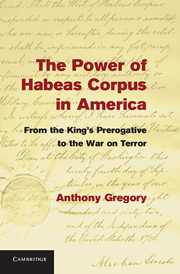As we approach the ten-year anniversary of the September 11th terrorist attacks, we are seeing lots of estimates on the costs of America’s wars waged in the last decade. Yet most of them miss the big picture.
President Obama has pegged the cost of the Iraq war at about a trillion dollars. This doesn’t capture the full price. University of Columbia’s Joseph E. Stiglitz and Harvard’s Linda J. Bilmes argue that the total economic cost is closer to three trillion, adding that just “the total tab to the federal government will almost surely exceed $1.5 trillion.”
Many factors are ignored in the smaller estimates. For example, the wars in Afghanistan and Iraq will easily cost a trillion federal dollars in veterans’ benefits and health care alone.
Winslow Wheeler, Research Fellow at the Independent Institute and Director of the Straus Military Reform Project, stresses the need to look at everything: the post-9/11 military operations, the aid to governments like Iraq, Afghanistan, Pakistan and Yemen, the increased financial burden of domestic security, and the interest on deficit defense spending that financed these wars. He finds that “the federal costs already incurred would be from $3.2 to $3.9 trillion” —even if the wars ended abruptly tomorrow. The scholars at the Eisenhower Study Group arrive at similar estimates.
We can also simply look at the effect on the defense budget over the last decade. Exorbitant Pentagon spending has always been touted as necessary to protect the country, yet ten years ago it was suddenly decided that this huge price tag was not nearly enough. Apparently all that defense and intelligence spending before 9/11, which failed to prevent the attack, was for something other than defense. In 2001, adjusted for inflation to today’s dollars, the defense budget was just over $400 billion. After 9/11 the budget began rising at about eight percent a year. The latest funding request was for $707 billion. This doesn’t include the ballooning security-related expenses in the Department of Homeland Security, State Department, or Department of Energy’s nuclear weapon operations.
What was the full opportunity cost of all these wars? Few economists ask this question. What if these resources had been available for private savings and investment? What if the Americans and foreigners fighting had instead been working in the commercial sector, producing wealth? Perhaps the financial situation would look considerably better. The government is notorious for diverting money and energy from productive uses toward wasteful ones. Nothing is as destructive as war. Even the most just war imaginable is a disaster for the economy, as the great economist Ludwig von Mises explained.
Then there is a toll that dollars can’t measure: the cost in blood. So far, over 1,750 Americans have died in Afghanistan and more than 4,470 in Iraq. Taken together, this is twice as many Americans as died on 9/11. The trajectory is not so encouraging either, when we consider than 559 American troops died in 2010, and 469 died in 2008, Bush’s last year in office. Meanwhile, tens of thousands of Americans have been wounded and have suffered major psychological harm, all for wars whose mission is harder to justify every day. Are hawks still going to defend a war in Iraq, for example, given that Osama bin Laden was killed many years later in Pakistan?
This cost in foreign lives is even higher. Estimates vary widely but the real number is likely much higher than the mere “thousands” that Obama has pegged as the death count in Iraq. In 2006, the Lancet estimated the number of Iraqis to die as a result of the war to be 654,965. The real number is almost certainly in the hundreds of thousands. Many thousands have also died in Afghanistan. In Pakistan, it was reported last month that 168 children have died in drone attacks alone. Then there are the millions of innocents displaced from their homes.
In terms of precious liberties, the cost is simply immeasurable. The Patriot Act has trashed the Fourth Amendment. The Military Commissions Act gutted habeas corpus. Presidents of both parties have claimed the authority to detain someone indefinitely, even an American citizen, without due process, or even to declare someone an enemy combatant and be summarily killed.
The greatest loss to America may be in national character. Polls show that half of the public believes torture is sometimes justified. The people let their government get away with warrantless wiretapping and undeclared wars without any congressional approval or a credible threat to counter. Americans tolerate the greatest indignities at the airport and permanent war with half a dozen countries, as if this were a normal state of affairs.
When we hear talk about the trillion dollars spent “securing America” since 9/11, we should keep in mind that the cost has been much higher. Indeed, what has been lost is priceless.








